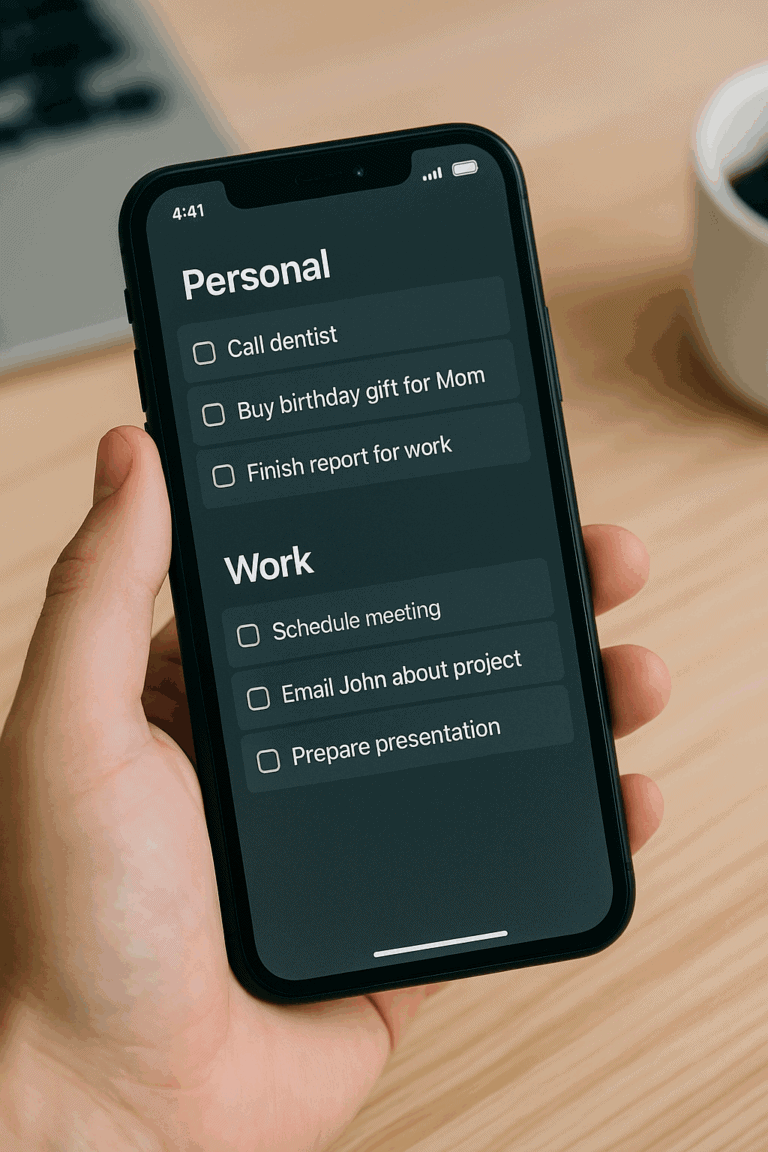Introduction
Hey there! I know life can get pretty hectic, especially when you’re juggling a busy career and personal commitments. Trying to find time to upgrade your skills can feel like an impossible task, right? But here’s the good news—online courses are a game-changer. They offer you the flexibility to learn at your own pace, right from the comfort of your home. Imagine boosting your career prospects and gaining new expertise without disrupting your daily routine. In this guide, we’re going to explore the best online courses for busy professionals in 2024, making it easier for you to find something that fits perfectly with your schedule and career aspirations.

Why Choose Online Courses?
Alright, let’s dive right in! You know, picking online courses isn’t just convenient; it’s a game-changer, especially for those of us juggling work, family, and personal time. I’ll tell you why they’re a perfect fit!
First off, flexibility is the absolute hero here. Imagine taking a course on digital marketing or project management at 2 AM because that’s the only free slot you’ve got. Well, online courses make this possible. Back when I was trying to upskill while working a full-time job, traditional classes were out of the question. But with online courses, I could learn at my own pace. I’d grab my laptop after putting the kids to bed and dive into lessons on digital marketing without any hassle. It was a lifesaver!
Next up, the quality of materials and instructors has really impressed me. I once enrolled in a leadership course on Coursera and guess what? The instructor was a CEO with over 20 years of experience. Now tell me, where else would I get such direct access to expertise without breaking the bank? And let’s talk materials – we’re talking about video lectures, downloadable PDFs, interactive quizzes, and whatnot! It’s like having a mini-university right at your fingertips.
Speaking of banks, did I mention how cost-effective online courses can be? Traditional education will have you shelling out thousands, but online platforms often offer high-caliber courses at a fraction of the price. I remember taking a six-week advanced Excel course for under $100. The return on investment? Priceless. So not only was I learning new skills, but I was also doing it without emptying my savings.
And don’t get me started on the ability to balance work, life, and learning. This is the ultimate win! When you’re super busy, you can’t afford to take time off work or miss family dinners. Online courses step in as the perfect middle ground. You can squeeze in a lesson during lunch breaks or finish assignments on weekends. For me, having this level of flexibility meant I could actively engage in continuous learning without feeling overwhelmed or burnt out.
Now, a crucial aspect to consider is support and community. You might think online classes are lonely, but that’s not the case. Many courses have vibrant discussion forums, peer reviews, and even live sessions. When I took a course on data analytics, I found myself part of an active Slack community where professionals exchanged ideas and tips. It was like having a virtual classroom buzzing with activity, minus the commute!
So, why should you opt for online courses? It’s clear – the flexibility, quality, cost-effectiveness, and balanced approach make them ideal for anyone aiming to upgrade their skills while navigating a busy life. Whether you’re eyeing a leadership position or just looking to expand your knowledge, online courses offer a fantastic and practical solution.
Top Online Learning Platforms for Professionals
Alright, folks, let’s dive into the nitty-gritty of the best online learning platforms out there for busy professionals. We’ve all been there—juggling work, life, and the ever-present need to keep upskilling. Trust me, I’ve tried a few different platforms myself, and not all are created equal! Here are some of my personal favorites along with a few runner-ups that have helped me stay on top of my game:
1. LinkedIn Learning
If you’re already living on LinkedIn for networking, you’ll love LinkedIn Learning. The beauty here is the integration; you can easily showcase your new skills directly on your profile. I’ve found courses on project management and digital marketing to be particularly solid. Plus, the mobile app is super user-friendly, so you can learn while you’re stuck in traffic or on a lunch break.
Here’s something that stumped me initially: the plethora of options! Make sure you read reviews and check ratings before diving into a course. It’s also great because it offers bite-sized modules, so you don’t have to commit to a long video if you’re strapped for time.
2. Coursera
Ah, Coursera—the platform I always return to when looking for university-level courses. It partners with institutions like Yale, Stanford, and even Google. I remember taking a “Data Science” course by Johns Hopkins University, and it was both challenging and rewarding.
One pro tip: if you’re budget-conscious, look for courses that offer financial aid or free trials. Coursera is flexible in this sense, and you can often audit courses for free, only paying if you need the certification. And let me tell you, the quizzes and peer-reviewed assignments will keep you on your toes!
3. Udemy
Udemy is like the Wild West of online learning—a vast array of courses on just about anything. From coding and business strategy to personal development and hobbies, it’s got it all. What I love the most about Udemy is the frequent sales. Like, seriously, add a course to your wishlist and wait for one of their epic sales; chances are, you’ll nab it for under $15!
However, with so many options, it’s easy to get lost. Always filter by ratings and read through the course curriculum before enrolling. When I was learning Python, I found a course with 200k+ students and rave reviews, which was a game-changer for my coding skills.
4. Skillshare
Skillshare is more creative-centric, which might be a nice break if you’re tired of all the business and tech courses. I took a class on graphic design that was super hands-on and collaborative. The cool thing here is the community aspect; you can join projects and get feedback from peers and instructors.
One minor gripe—there’s a lot of content that’s more inspirational than instructional. So, if you’re aiming for specifics, read the course intro to ensure it meets your needs. But for creativity and unique skills, Skillshare is gold.
5. MasterClass
Okay, MasterClass is sort of the Cadillac of online learning. If you’ve ever wanted to learn cooking from Gordon Ramsay or creative writing from Neil Gaiman, this is your place. The production quality is stellar, making it feel less like an online course and more like an engaging TV show.
It’s a bit on the pricier side, but the annual membership pays off if you’re committed to learning from the best in various fields. Personally, I’ve binge-watched quite a few sessions from various experts, and it’s as entertaining as it is educational.
Runner-Ups
- edX: Similar to Coursera, but I’ve found its partnership with renowned universities like MIT and Harvard pretty compelling.
- Pluralsight: Amazing for tech professionals. I used it to brush up on my cloud computing skills.
- Thinkific and Teachable: Great if you’re looking into building your own courses. They let you create and share your knowledge with the world.

Key Features to Look for in an Online Course
Choosing an online course can feel like navigating a labyrinth, especially with so many options out there. Trust me, I’ve signed up for a few duds before landing on some real gems! Here are the key features you should look for based on my trial-and-error adventures in online learning.
1. Quality of Content
First things first, the content must be top-notch. One of my early mistakes was diving into a course that seemed comprehensive but ended up being too shallow. Always look for courses that are well-reviewed and created by credible instructors with real-world experience. You want your time to be well-spent, after all.
A little tip: check if the course provides a detailed syllabus available upfront. A course that breaks down each module with specific learning outcomes is usually a sign that it’s well-organized and thought out.
2. Instructor Credentials
A great course is only as good as the person teaching it. There was a time I enrolled in a coding course taught by someone who had flimsy industry experience. Big mistake. Now, I make sure the instructors are experts in their field and have a teaching style that meshes with how I learn best.
Don’t be shy to Google the instructor or look them up on LinkedIn. Real-world credentials and positive student feedback add layers of trustworthiness.
3. Interactive Elements
Learning shouldn’t be a passive activity. Courses that incorporate quizzes, assignments, or even peer discussions can make a huge difference. I remember breezing through a graphic design course, and the interactive assignments kept me engaged and made the lessons stick.
Look for courses that offer some form of interaction, whether it’s forums, live chats, or even virtual study groups. Trust me, these elements add a lot to the learning experience and can make it more enjoyable.
4. Lifetime Access
One of the best decisions I ever made was investing in courses that offer lifetime access. Especially for subjects that frequently update, like tech or digital marketing, being able to go back and revisit content is invaluable. I had a situation where I had to retrace my steps in a SQL course for a project months after completion—having access saved my bacon.
So, always check the access policies. Lifetime access or at least extended access periods are a big plus.
5. Certificates and Accreditation
Let’s be honest, a shiny certificate can open doors. If you’re looking to upskill for your career, make sure the course offers a legitimate and recognized certificate. I once took a course that promised a certificate but turned out to be more of a ‘thanks for participating’ note—ouch.
Accreditation from a well-known institution or industry body adds not only to your resume but also to the credibility of the knowledge you’ve gained.
6. Flexibility
A crucial factor for many of us juggling work, life, and learning is flexibility. Courses that allow you to learn at your own pace, download materials, or even reset deadlines can be a lifesaver. I remember a course with rigid deadlines that clashed with a busy period at work; it was a nightmare to keep up.
Look for features like “self-paced” or “lifetime access” to ensure the course can adapt to your schedule, not the other way around.
7. Peer Reviews and Ratings
Don’t just take the course provider’s word for it. Sift through peer reviews and ratings. They offer real insight into the course’s effectiveness. One hilarious memory I have is of a course with nearly perfect scores, but halfway through, it became clear the early reviews were based on incomplete content, and they were updated with less enthusiastic feedback later.
Platforms like Udemy, Coursera, and LinkedIn Learning usually have comprehensive review sections. Take your time reading them.
8. Technical Support
Lastly, and this is often overlooked, robust technical support can save a lot of headaches. I was once stuck in the middle of an assignment because of a platform glitch, and the lack of responsive tech support was beyond frustrating. Courses hosted on platforms with 24/7 support or a solid FAQ section can make a significant difference.
Make sure there’s easily accessible help in case you run into any issues, especially if you’re doing time-sensitive work.
Popular Course Topics for Busy Professionals
Finding the right course when you’re swamped with work can be a game-changer. Trust me, I’ve been there—having to upskill while balancing a nine-to-five and personal commitments was no cakewalk. But over time, I’ve nailed down some killer courses that suit busy professionals like you and me. Let’s dive into what works best.
1. Data Science and Analytics
This one’s a no-brainer if you’re in a field where data drives decision-making. I enrolled in a data analytics course during a particularly hectic quarter at work. It felt like jumping into the deep end without floaties initially, but boy, did it pay off. The newfound skills helped me automate reports and visualize data more effectively, saving me hours every week.
Look for courses that cover the basics of SQL, Python, or R. Tableau and Power BI are also worth your attention, especially if you’re into data visualization. My advice? Start small. Data science can be overwhelming, so opt for an introductory course that covers the essentials before diving deeper.
2. Digital Marketing
If you find yourself constantly updating your social media or website, then beefing up your digital marketing skills could be a game-changer. One of the best decisions I ever made was taking a comprehensive digital marketing course. It covered everything from SEO to PPC and social media marketing, areas I’d been winging for too long.
Courses from platforms like Google Garage or HubSpot Academy are reputable and often free. They offer bite-sized learning modules, which are perfect when your schedule’s packed. Plus, they provide certifications that can boost your resume.
3. Project Management
Ah, project management—the backbone of any organized work environment. I once found myself in the weeds with multiple overlapping projects. You can imagine the chaos. So, I bit the bullet and took an online course in project management. Learning PM methodologies like Agile and SCRUM helped streamline my workflow and keep teams on track.
Look for courses offering PMP certification if you’re serious about it. These can be rigorous, so it’s worth ensuring you’ve got some dedicated study time earmarked. Whether you prefer Asana, Trello, or even a straightforward Gantt chart, mastering these tools can elevate your efficiency.
4. Soft Skills
Never underestimate the power of soft skills. Communication, time management, and leadership courses are invaluable. I remember taking a negotiation skills course after a rather botched attempt at securing a new contract. The skills I picked up were not just theoretical—they were actionable from day one.
Websites like LinkedIn Learning or Coursera offer excellent courses with interactive elements like role-playing scenarios. These are far from dull and can inject some much-needed dynamism into your daily routine.
5. Technical Skills and Coding
Even if you’re not a dev, knowing basics like HTML, CSS, or JavaScript can set you apart. I dabbled in coding a while back and, let’s just say, debugging wasn’t my favorite part. However, the ability to make minor tweaks to websites or automate simple tasks turned out to be incredibly empowering.
Platforms like Codecademy or Udemy offer beginner to advanced courses. Choose one with lots of hands-on exercises and real-world projects to avoid falling into the passive learning trap.
6. Finance and Accounting
Understanding the basics of finance is crucial, no matter your profession. I took an online accounting course after nearly botching my department’s budget. Numbers were never my thing, but the course made financial statements and budgeting far less intimidating.
Look for courses that demystify jargon and offer practical examples. Sites like Coursera often partner with universities, offering reputable finance courses that won’t turn you into a CPA overnight but will make your financial decision-making more solid.
7. Health and Wellness
With so much on our plates, it’s easy to let health slip. But believe me, a course focusing on stress management techniques or mindfulness can have a huge impact. I took a wellness course that introduced me to meditation practices and time-blocking strategies. It felt like hitting reset on my mental state.
Udemy and even MasterClass offer courses on wellness led by experts. These classes can be a godsend during particularly stressful weeks.
Success Stories of Online Courses for Busy Professionals
When I first dipped my toes into the world of online courses, I was a bit skeptical. I mean, how much can you really learn through a screen, right? Boy, was I wrong! One of my favorite success stories revolves around my friend Sam, who used online courses to transition from a retail manager to a thriving data analyst. Sam was always passionate about numbers but never got the chance to pursue it formally. He stumbled upon an online course in Data Science and decided to give it a shot. Fast forward two years, and he’s not only landed a job at a top tech firm but is also leading an entire team of analysts. The best part? He managed all this while juggling his full-time job and family responsibilities.
Another inspiring story comes from Jenna, a marketing whiz who wanted to upskill but felt overwhelmed by her busy schedule. Jenna used to spend hours commuting, which left her with almost no time for personal growth. She discovered some digital marketing courses that she could access on her mobile during her commute. Bit by bit, she completed them and even earned certifications. Today, Jenna runs a successful freelance business, managing social media campaigns for multiple clients worldwide. Her journey is a testament to how even the busiest of professionals can find pockets of time for learning if they’re determined.
Then there’s my own experience. I’ve always had a knack for writing, but I didn’t have any formal training. I decided to enroll in a few content writing and copywriting courses online. One of the best courses I took was on SEO, where I learned the ins and outs of search engine optimization. The practical tips and real-world scenarios really helped me understand how to make my writing more engaging and discoverable. Soon after, I started a blog that’s now a go-to resource in my niche. Plus, the skills I gained have allowed me to offer freelance writing services, adding an extra stream of income.
One of the most touching stories I’ve come across is about Tom, a single dad who wanted to switch careers for something more stable without sacrificing time with his kids. He took a project management course online and completed it at his own pace, usually after his kids went to bed. That course not only gave him the knowledge he needed but also boosted his confidence. He applied for a project management role at a local firm, and guess what? He got it! Now, Tom has more time to spend with his kids and doesn’t have to worry about his job security.
Online courses have also been a lifesaver for professionals looking to improve their soft skills. Take Emily, for example. She was amazing at her job but struggled with public speaking. She took an online course that offered virtual reality simulations and peer feedback. Practicing in a safe, controlled environment helped her break out of her shell. Today, she’s the go-to person for presentations and client meetings in her company. Her transformation is a perfect example of how online courses can help you grow in areas you might not even realize need improvement.
Online courses really do open up a world of possibilities, regardless of how jam-packed your schedule is. Whether you’re looking to switch careers, upskill, or just explore a new hobby, there’s likely a course out there that fits your needs. The success stories I’ve shared are just the tip of the iceberg. The key takeaway? If you’re willing to put in the effort, the resources and opportunities are more accessible than ever.
How to Make the Most of Online Courses
When it comes to making the most of online courses, I’ve picked up a few tricks along the way that transformed my learning experience from “meh” to “wow!” First off, it’s all about setting clear goals. I remember diving into my first online course without a specific objective, and it wasn’t long before I felt overwhelmed and lost. Take a moment to outline what you want to achieve—whether it’s gaining a new skill, acing a certification, or simply exploring a topic of interest. Trust me, defining your purpose makes a huge difference.
Another key tip: schedule dedicated time for your coursework. This might seem obvious, but I’ve found it’s easier said than done. I used to think I could squeeze in a lesson here and there between other commitments. Spoiler alert: that rarely happened. Now, I block off specific times in my calendar. Think of it like a non-negotiable meeting. It can be 30 minutes early in the morning or an hour after dinner. Consistency is your best friend here.
Active engagement is another game-changer. Let me tell you, passively watching videos doesn’t cut it. I used to just sit back and let the content wash over me, hoping it would stick. Instead, I started taking notes, asking questions in forums, and participating in any interactive elements the course offered. Engaging actively not only reinforces learning but also keeps you motivated.
Don’t underestimate the power of a strong learning environment. I used to study at my kitchen table with the TV on and my phone buzzing. Not ideal! Create a dedicated, quiet space for your studies. It doesn’t have to be fancy—a corner of a room with a comfortable chair, good lighting, and minimal distractions works wonders. When you sit in that space, your brain knows it’s time to focus.
One thing that helped me immensely was breaking my learning into chunks. Long sessions can be draining and lead to burnout. I follow the Pomodoro Technique: 25 minutes of focused study followed by a 5-minute break. After four cycles, I take a longer break. This method kept me fresh and engaged, plus those short breaks were perfect for quick stretches and recharges.
Let’s talk about choosing the right course. Ever signed up for a class only to realize halfway through that it wasn’t what you expected? Been there, done that. Before committing, read course reviews and understand the curriculum. Look for courses that offer previews or trial periods. This homework upfront ensures you’re investing your time and money wisely.
One personal mistake I made early on was not seeking support when stuck. You don’t have to go it alone. Many online courses offer mentors, peer support groups, and discussion forums. Don’t hesitate to ask for help. I once spent hours trying to solve a problem that a quick post in the course forum resolved in minutes. Reach out—it’s part of the learning process.
Keeping track of your progress is another tip. There’s something very satisfying about checking off completed lessons. Most online platforms have progress trackers—use them! It not only motivates but also gives a clear picture of how far you’ve come and what’s left.
Lastly, don’t forget to apply what you learn. Theory is great, but practical application cements knowledge. I often work on related projects or try out new skills in real-life scenarios. It’s one thing to learn about SEO and quite another to optimize your blog successfully. Practice turns abstract concepts into useful, tangible skills.
Those are just a few strategies I’ve found helpful. Ultimately, making the most of online courses boils down to being intentional and proactive. Ready to start your learning journey? What’s the first course you’re diving into?
Conclusion
Online courses are an incredible resource for busy professionals looking to upskill without disrupting their work-life balance. By choosing the right platform and course, you can open new doors and achieve new heights in your professional journey. So why wait? Start exploring these courses today and take the first step towards a brighter, more skilled future!




